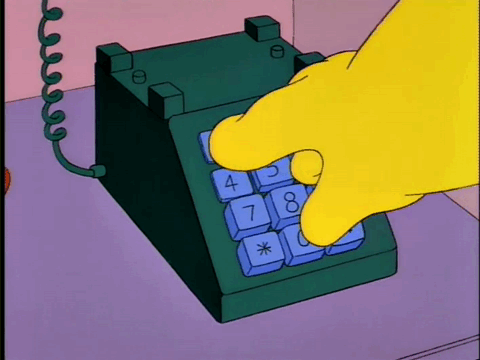DIY Security
4 Major Home Security System Gotcha’s To Avoid
• 4 min read
You bought a new home, and you want to protect it. The problem is, you’re a complete beginner to the home security market and you don’t want to make a mistake by choosing the wrong fit for your residence. Here are four major home security system “gotchas” to avoid when looking for a new smart home security system.
Gotcha #1: You’re Locked Into a Multi-Year Contract!

You can’t believe your eyes. A big security company has a TV commercial with your favorite HGTV stars, in which they promise a home security system for $0 upfront. Sure, the monthly fee is higher than you’d like, but you’re getting a home security system for free, right? Think again.
True, these “no money down” offers seem attractive at first. The company will even send professional installers to set up the system in your home. Yet, this convenience comes with a cost: a long-term contract that will take years to pay off.
The typical traditional alarm contract is an eye-popping 36 months, although terms can range from 24 months to 60 months. The shorter the contract, the higher the monthly fee, ranging from $36.99-68.99/month. Once you’ve signed the contract, you’re stuck. Canceling a home security contract can be extremely difficult and expensive, and termination fees can be close to 75% of the remaining contract.
Gotcha #2: The Power’s Out and There’s No Backup!

The average hard-wired alarm system is fully dependent on your home’s electrical power. If a thief is able to cut the power to your home, your alarm system could fall offline, depending on what it uses to connect to the monitoring center. Even if the alarm itself has a backup, you’ll want to make sure accessory devices like the keypad or control panel are backed up as well, so that if your alarm goes off during an outage, you’ll be able to silence the siren!
When it comes to smart home protection, redundancy is the name of the game. You want a system with multiple backups to prevent the system from turning off when needed most. Things like smash-and-crash protection, battery backup, and cellular backup keep your smart home security system connected so that your perimeter is armed against a break-in. Knowing that your system is designed to stay connected helps you sleep better at night.
Gotcha #3: Obsolete Technology Can’t Adapt!

Has this happened to you? You buy a smartphone or a laptop, and before you know it, it’s too old for the latest software. You have to upgrade your device just to keep up with changing technology. With the rise of the smarthome, security systems can become obsolete just as quickly as a smartphone. If your home security sensors are hardwired or built on a proprietary wireless protocol, you’re going to have trouble integrating with the newest gadgets and gizmos.
You’ll want to look for a wireless smart home system that is built on the Zigbee or Z-Wave wireless standards. These communication styles are common among smart home technology, and can incorporate new devices, or integrate sensors from a third-party manufacturer. It’s also important to find a home security system that can use Amazon Alexa and Google Assistant, so you can use voice control to arm and disarm your security system, as well as home automation so your home security devices arm automatically.
Gotcha #4: You Can’t Get a Human on the Phone!

Phone support has become frustrating for customers of all industries, as businesses have moved from direct lines to endless touch-tone or voice-activated menus. Then, when you finally select the option you need, you’re stuck on hold for half your evening.
When it comes to home security, accessible phone support is a must. Every minute your alarm system is experiencing a malfunction is another minute that you’re not being protected. When evaluating home security offerings, be on the lookout for speedy response time and knowledgeable tech support. While these factors are not often advertised, you can get a good sense of these stats by reading customer reviews or even calling the companies' phone support lines yourself.
A Better Way
How do you avoid being hoodwinked? Go with a home security system that was designed in response to these “gotcha’s.” Scout Alarm was founded in 2013 because we wanted to create an alternative to the mainstream alarm companies so that you can protect your home with no regrets. Unlike traditional alarm companies, our monitoring plans are month-to-month, with no contracts. There are self-monitoring and professional monitoring options available, depending on your surveillance needs.
The Scout Alarm hub includes a battery backup for power outages, and a 4G LTE cellular backup to make sure your system is online, even when your Internet isn’t. Have an Amazon Alexa? Good news, Scout Alarm is an Amazon Smart Home Skill, which means you can arm and disarm your system by voice commands, and integrate Scout sensors into your Alexa routines.
Finally, our customer service is consistently rated highly from multiple reviewers. See for yourself by calling 844-287-2688, or emailing support@scoutalarm.com.









